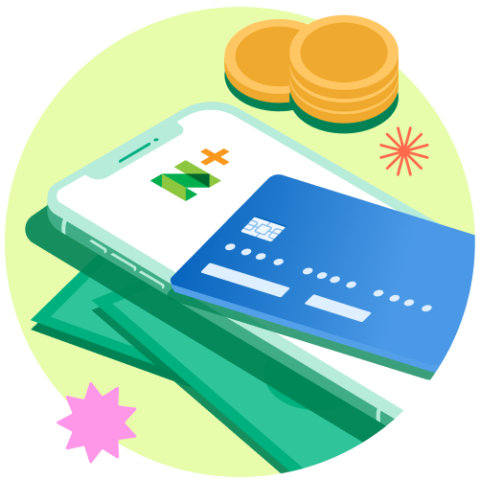
Melissa Lambarena is a senior writer on the credit cards team at NerdWallet. She has enthusiastically covered credit card-related topics for over seven years. Her prior experience includes nine years as a content creator for several publications and websites. Through her work, she aims to help readers extract value from credit cards to meet financial goals like stretching their budget, building credit, traveling to dream destinations and paying off debt. She explores these topics in the Millennial Money column featured in The Associated Press. Her work has also appeared in The New York Times, Chicago Tribune, The Washington Post, USA Today and Yahoo Finance, among others. Melissa has a bachelor’s degree in sociology from the University of California, Los Angeles.
Assigning Editor Kenley Young
Assigning Editor | Credit cards, credit scores
Kenley Young directs daily credit cards coverage for NerdWallet. Previously, he was a homepage editor and digital content producer for Fox Sports, and before that a front page editor for Yahoo. He has decades of experience in digital and print media, including stints as a copy desk chief, a wire editor and a metro editor for the McClatchy newspaper chain.
Fact Checked
Many, or all, of the products featured on this page are from our advertising partners who compensate us when you take certain actions on our website or click to take an action on their website. However, this does not influence our evaluations. Our opinions are our own. Here is a list of our partners and here's how we make money.
The return of federal student loan payments in October has the potential to derail your finances, especially if you’re already struggling with credit card payments.
One in five student loan borrowers have risk factors that suggest they could struggle with student loan payments when they resume, according to a June blog post at the Consumer Financial Protection Bureau.
The impact won’t be as significant during the initial 12-month student loan on-ramp period from Oct. 1 to Sept 30, 2024. You won’t default on student loans or see credit scores plummet after missing payments during that time. But interest will continue to accrue, making the growing debt more difficult to manage. Use the next 12 months to make progress with consistent payments. You’ll save more money over time and pay down debt faster.
Here are some strategies to consider as you’re getting started.
An updated budget clarifies how much money is available to pay down debts. Review your debit and credit card statements for opportunities to cut back or find cheaper alternatives.
Start by writing down where your money is going, says Kristen Holt, CEO at GreenPath, a nonprofit credit counseling agency.
Prioritize essentials like rent, utilities, transportation and others, she says. And, if possible, work toward building an emergency fund of at least $500 to prevent more debt.
“Anything is better than nothing,” Holt says. “Even if you’re putting $10 a paycheck into a savings account, it takes a while, but it’s still going to be better than zero.”
Next, determine whether you’ll be laser focused on student loan or credit card debt. Keep up with all payments, but put more money toward the high interest debt to make more progress. Credit cards typically have higher interest rates unless new terms are applied through an agreement or promotional offer.
A good credit score of 690 or higher can qualify you for low-interest offers. A balance transfer credit card , for instance, lets you move debt onto the card to get a lower interest rate. The ideal balance transfer card has no annual fee, a 0% introductory interest rate and a reasonable balance transfer fee of 3% or lower. If that fee is lower than your current projected interest payments, the savings will add up and you can apply them to student loan payments.
For multiple credit card balances, consider a personal loan that consolidates debts into a single low-interest fixed payment.
If circumstances beyond your control, like an emergency or a layoff, are impacting your ability to keep up with payments, ask the credit card issuer if it has a hardship plan . It may temporarily lower interest and waive fees for a specific period of time, depending on the issuer’s terms.
Ready to earn your first $100 in rewards?Nerdwallet+ members can earn $100 in rewards by paying their first bill on time with one of these eligible credit cards.
GET STARTED
With an income-driven repayment plan, your monthly payments on federal student loans are based on your income and family size. The debts are also forgiven after 20 or 25 years of payments. There are currently four income-driven repayment plans to consider based on your goals and loan type.
When it comes to student loans, you either want to pay them off quickly to save on interest or pay as little as possible to take advantage of any of the forgiveness plans that are available, says Renée Earwood, an accredited financial counselor and student loan coach.
“It is a case-by-case basis depending on how much student loan debt they have, what their personal goals are and what their income level is,” Earwood says.
If you’re already on an income-driven repayment plan, Earwood suggests comparing options in case a different one makes sense for your goals. For instance, those who have undergraduate loans may want to switch to the new SAVE plan because it could cut their payments in half starting in July 2024, and forgive remaining debt more quickly if they have a smaller principal balance.
When you can’t envision making progress on debt, a nonprofit credit counseling agency may help. A credit counselor can review your finances, create a budget and determine eligibility for a debt management plan. This option consolidates credit card balances into a single payment with a lower interest rate, for a fee. If the credit counselor is also a certified student loan expert, they can help narrow down the ideal student loan repayment plan.
“We’re going to look at the person’s whole situation,” Holt says. “We do a soft pull of their credit report — it does not affect their credit score in any way — but we get that picture of everything.”
After lowering the costs of your debts, avoid adding new purchases on your credit cards. A temporary switch to a debit card or cash can keep financial goals on track.
Your credit card won’t be closed by the issuer due to inactivity , since there is a balance on it and you’re making payments. Once the balance is paid off, keep the card open and active with small recurring purchases.
This article was written by NerdWallet and was originally published by The Associated Press.
About the authorYou’re following Melissa Lambarena
Visit your My NerdWallet Settings page to see all the writers you're following.
Melissa is a credit cards writer at NerdWallet. Her work has been featured by The Associated Press, New York Times, Washington Post and USA Today. See full bio.
On a similar note.

Download the app

Disclaimer: NerdWallet strives to keep its information accurate and up to date. This information may be different than what you see when you visit a financial institution, service provider or specific product’s site. All financial products, shopping products and services are presented without warranty. When evaluating offers, please review the financial institution’s Terms and Conditions. Pre-qualified offers are not binding. If you find discrepancies with your credit score or information from your credit report, please contact TransUnion® directly.
NerdUp by NerdWallet credit card: NerdWallet is not a bank. Bank services provided by Evolve Bank & Trust, member FDIC. The NerdUp by NerdWallet Credit Card is issued by Evolve Bank & Trust pursuant to a license from MasterCard International Inc.
Impact on your credit may vary, as credit scores are independently determined by credit bureaus based on a number of factors including the financial decisions you make with other financial services organizations.
NerdWallet Compare, Inc. NMLS ID# 1617539
California: California Finance Lender loans arranged pursuant to Department of Financial Protection and Innovation Finance Lenders License #60DBO-74812
Insurance Services offered through NerdWallet Insurance Services, Inc. (CA resident license no.OK92033) Insurance Licenses
NerdWallet™ | 55 Hawthorne St. - 10th Floor, San Francisco, CA 94105